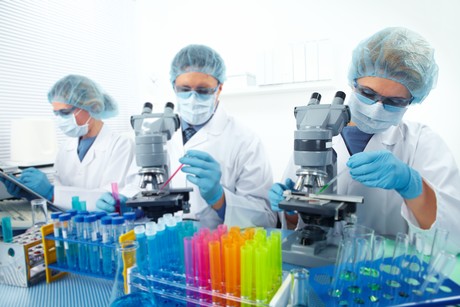Bacterial diagnosis much faster with new system

Faster treatment and recovery times, with reduced risk of antibiotic resistance, are now possible for patients with bacterial infections thanks to a new diagnostic system.
Developed at the Technion-Israel Institute of Technology, the system enables rapid and accurate antibiotic customisation for the patient, faster diagnostics, earlier and more effective treatment of infectious bacteria, and improved patient recovery times. The findings were published this week in the Proceedings of the National Academy of Sciences (PNAS).
Antibiotics are one of the most effective ways to treat bacterial infections. However, their widespread use has accelerated the development of bacterial strains resistant to specific antibiotics. In 2014, infections with antimicrobial resistance (AMR) claimed the lives of more than 700,000 people worldwide.
For patients with threatening infections, urgent treatment is required for their health. According to established estimates, for every hour that effective antibiotic treatment is delayed, survival rates drop by ~7.6% for patients with septic shock. Therefore, in order not to leave the patient without adequate protection while awaiting the results, many doctors prescribe an antibiotic with a broad spectrum of activity in large doses. This phenomenon facilitates the emergence of AMR and also affects the microbiota — the population of ‘good bacteria’ found in the human body that protects it.
So there are obvious benefits in technology that can predetermine resistance of specific bacteria to specific antibiotics. The Technion’s innovative diagnostic system, called the SNDA-AST, quickly analyses bacteria isolated from patients with infections and assesses their level of resistance to specific antibiotics. This enables the healthcare team to choose the most effective antibiotic a day earlier compared to when using traditional methods. In addition, the researchers demonstrated the ability to test bacteria directly from raw patient urine samples, thereby skipping the isolation step and potentially saving two days for patients with urinary tract infections.
The Technion device is a chip with hundreds of nanolitre wells inside it, each containing a few bacteria and a specific antibiotic. Bacterial response detection is done using a fluorescent marker, image processing tools and statistical analysis of the colours obtained from the bacteria in all the nanolitre wells.
In a study in which 12 bacteria-antibiotic combinations were tested in the system, the results, which were obtained in a short time, were accurate and allowed for early and effective treatment of the infectious bacteria. “The use of the technology that we developed reduces the size of the required sample by several orders of magnitude, reduces the scanning time by around 50%, significantly reduces the lab space required for testing and reduces the cost per test,” a Technion spokesperson said.
The study team was led by Professor Shulamit Levenberg, Dean of the Technion Faculty of Biomedical Engineering, in cooperation with the Technion Faculty of Mechanical Engineering and the Microbiology Laboratory at Rambam Health Care Campus.
Hong Kong to host Asia Summit on Global Health this May
The event will be held at the Hong Kong Convention and Exhibition Centre (HKCEC) from 16-17 May...
At-home care recipients in hospital longer compared to aged care residents
The study involved collaboration between the Southern Adelaide Local Health Network, Flinders...
SA physician selected for global health leadership program
Dr Chloe Furst, a dual-trained geriatrician and palliative care physician from the Central...










